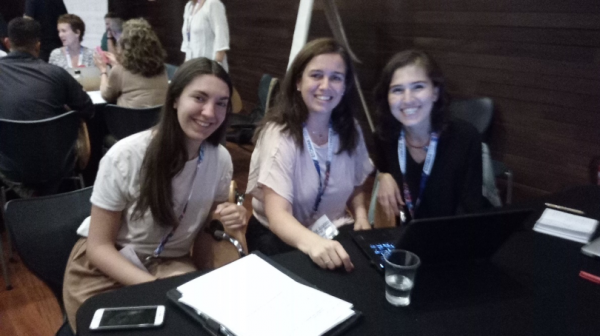Barcelona, October 2018.
Is there any way to reduce the great distance that currently exists between professional market research services and startups?
It was a while since I wrote an article, and this is because I only write when I have the feeling that I have seen things from another point of view or learned something. And that’s what happened to me the other day at the ESOMAR Research Rally Barcelona 2018, held at the headquarters of Barcelona Activa (Spain). I left with the batteries charged and eager to do things.
The event consisted in bringing together 6 startups with market researchers, through a one-day marathon session, who had to use market research techniques to solve startup challenges. Startups were paired with market researchers, and they worked together to identify business issues and how to overcome them.
Beyond the stimulation of the practical and participatory nature of the event, and the presence of researchers from different countries, what I found most inspiring was the contact with startups. And to see a possible way to have a relevant and viable relationship with startups at the level of market research.
Contact with startups is always stimulating for me, probably because the entrepreneurial profile of startups is usually consisted of young people, very educated, without any prejudice or complexity, and who are eager to take charge of the world!
But having said that, in addition, the event was concluded with a positive and hopeful feeling about the relationship between traditional market research and disruptive startups.
On a previous occasion it was not like that. That time I had to give a talk about market research to Master’s students on entrepreneurship in startups. But, at that time my conclusions were quite hopeless, since upon preparing the talk I had discovered that startups do not hire market researchers, but they do it themselves, without any kind of expert tutelage, using the Lean Startup system. The system can be summarized as: launching and implementing your intuition (since the cost of launching a mobile application is usually nil) and the market will tell you if you’re on the right track or not anyways. (https://victoriascarpato.com/2016/04/18/investigacion-de-mercados-en-startups-spin-of-y-empresas-innovadoras-y-de-base-tecnologica/ ).
On the contrary, this time I discovered a way to present market research in an attractive and affordable way for startups. Not only affordable at the cost level, which is the main reason why startups do not hire market researchers. In addition to the level of time spent and the involvement of startups-elements that seem absolutely essentials.
How to do it?:
1) Do not go with the budget in mind. Startups do not usually have a market research department, they also do not like to interact with people who are just simply there to maintain a consultative and commercial relationship with them. They look for partners who feel part of the project and to form a relationship at a deeper level than we usually establish with the companies we advise. We must become part of the project.
On the other hand, in order to reduce the initial costs, we could “bet” on the startup, as do the business angels (investors who provide financing and / or experience to startups in order to obtain a future profit), and receive our economic retribution a posteriori, via shares of stock of the startup or receiving a percentage of the future income of the startup.

2) Distribute the research tasks. Where I really noticed that market researchers provided invaluable help to startups, it was at the moment of helping them to propose research, that is, to help them discover relevant questions, problems, and challenges they had to solve through market research. And, secondly, logically, raising the questions correctly.
But on the other hand, the fieldwork and free platforms (from the well-known SurveyMonkey for quantitative surveys, to Skype for interviews or qualitative groups) are perhaps something that startups could undertake themselves. The researcher would only supervise parts of the fieldwork and then, logically, help them in interpreting the results. I see the risk, but I think you can try.
3) To diminish importance to the sample size: the clients to which we are accustomed to treat from the professional markets research, always demand to us high indices of confidence of the data. But how many times have we had the feeling that our clients seem more interested in covering their backs (having a report that supports their decision making) than not wanting to learn new things or rethink the foundations of their business model? However, for startup drivers, the confidence index does not seem to worry them that much. They use research simply as another indicator, but they pay more attention to their intuition and their way of seeing their company than to the results. The results inspire them, they do not determine their strategies.
Finally, the contact with the startups gave me another learning, but this time, in relation to the way to face the challenges. Something we can apply in our day-to-day work: don’t give things too many laps, launch and try ideas, accepting a certain index of uncertainty, and then, we will make changes if necessary. It seems a good way of reinventing yourself every day, don’t you think?
Victoria Scarpato Bravo
Qualitative market researcher and planner freelance from Barcelona (Spain)
e-mail: vscarpato@hotmail.com
Tel: (0034) 691 303 171
Twitter: https://twitter.com/vikiscarpato
LinkedIn: https://www.linkedin.com/in/victoria-scarpato-bravo-57516b8/
Blog: https://victoriascarpato.com/



1 comment
Please, let me know your point of view!